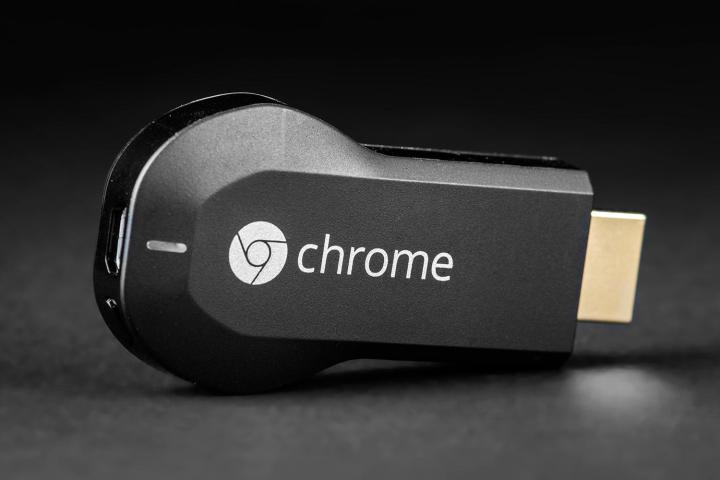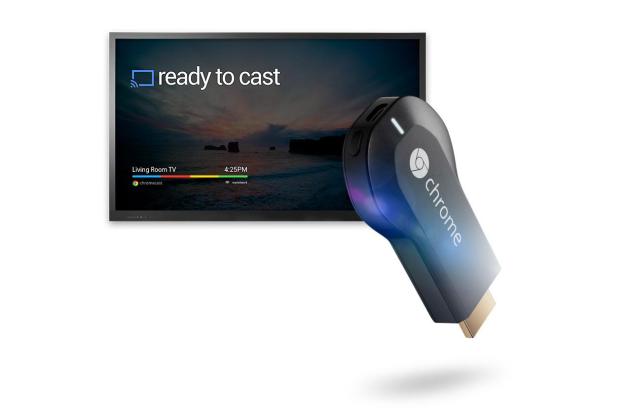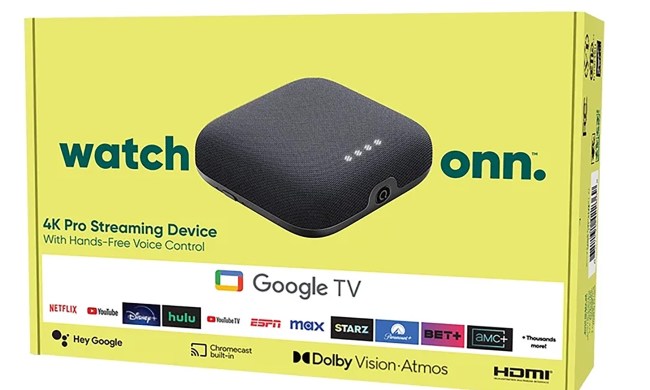
Since its release last July, Google’s Chromecast has had a big hand in shaping the rapidly evolving streaming media landscape. The $35 dongle has risen from its roots as a fledgling companion for Youtube and Netflix to become a top competitor in the set-top marketplace, raising an increasingly popular question along the way: “Who needs a smart TV, anyway?”
Thanks to Google’s pushing and prodding for app support (and its public release of the Chromecast software development kit) there are now more ways than ever to use the ‘little dongle that could’ for your streaming pleasure. But there are a lot of folks who may wonder if Chromecast has any features that can improve their current media experience, and still others who may not be taking full advantage of everything their Chromecast can do.
With that in mind, we’ve put together this guide showcasing our top five ways to use the Chromecast outside the box – no pun intended. Follow us below and discover some awesome ways to get every last dime’s worth out of your Chromecast.
Create a wireless media server for your TV
While there are other ways to convert an old computer into a wireless media server without involving the Chromecast, the methods can be confusing and time consuming for novice users. However, now that the Plex Media Server app is in the Chromecast fold, streaming all of your videos, photos, and music to your TV just got a whole lot easier.

To get started with Plex, you’ll need to go to the Plex website and setup a free account. The site will ask you to download its server application to get things started. Once done, you can go into your Plex account and begin adding files from your collection, which the application will seek, organize, and display. The system asks for categories like TV shows, movies, music, etc.
After your files are organized, just download the $5 Plex app to your mobile device, and you’ll see Chromecast’s magical “cast” icon displayed on any file you pull up from your library. Click the icon, and voila: you’ve got access to your entire media collection on your TV. Even more impressive is the fact that the files are broadcast with crystal clarity and no latency (because Plex does all of the transcoding), an experience that goes above and beyond that which we experienced when simply plugging our laptop directly into the TV via HDMI, and exponentially more convenient. Not a bad upgrade for five bucks!
Mirror your laptop
One of the coolest things about Chromecast is the way its cast icon just shows up on any supported application, making apps like Netflix, Youtube, and HBO GO a cinch to project to your TV with a single click. But that does you no good if you’re trying to watch something from an unsupported website. To accomplish basic “screen mirroring” from the web at large, Google has built a feature into its Chrome browser that allows you to cast any open tab to your TV. It’s not true mirroring, in the sense that it doesn’t beam your entire desktop onto the TV, but it does allow you to get pretty creative.

You could even use Chromecast in the classroom. A teacher might try dialing up a web-hosted diagram for an astronomy or biology class, or an archive of old photos for a history lecture.
And, of course, there are multiple … ahem … other types of sites with content that won’t make its way onto any wholesome video application. With Chromecast, all of these options are ready and waiting to go live to any screen with an HDMI connection.
Mirror your Android phone or tablet

Shortly after Chromecast debuted, AllCast was created, allowing users to to cast videos, music and photos directly from their Android mobile device to the TV. However, Google quickly blocked the app, and AllCast moved on to devices like Roku, Apple TV, and Xbox 360. Though still “very much in beta” according to the app’s architect, Koushik Dutta, AllCast support thankfully returned to the Chromecast in early February 2014,
To get started with AllCast, you’ll need to go to the Google Play store and download the free AllCast app, as well as the $5 AllCast Premium upgrade – otherwise your files will all be limited to one minute of streaming. You’ll also need to download the Google Play Services 4.2 app so your phone or tablet knows what to do with AllCast.
Once those three apps are installed, just launch AllCast, pick Chromecast as your destination, and you should be ready to rock. AllCast will automatically find your compatible files, so all you’ll need to do is pick your poison, sit back, and enjoy.
Turn your home theater into a video jukebox
If you’ve got a decent home theater system and a Chromecast, you’ve got the makings of a great music backdrop for a party. Chromecast already works with a wide selection of music apps, including Pandora, Napster, Rhapsody, Songza, Vevo, and Rdio, allowing you to easily control the tunes from your phone, and stream them through your TV and, by extension, any audio gear connected to it. But if you want to take things further, a cool new $5 iOS app called Projectify can help.

The app is still a little buggy, and it seems to communicate best with Chromecast when left alone, without a lot of switching between tracks. We also wish it had a more intuitive interface. But it worked relatively well with our Spotify account in testing – and it is a lot of fun to see what kind of videos it will find. If no official video is available, the app will often just find one that hosts a picture montage of the artist or band, or occasionally skip the song, but it’s a very cool way to put up some dynamic music media in your home. Veg out on videos all day, or add some booze and a few friends, and you’ve got an instant party.
Take it on the road
Of course, one of the best arguments Chromecast makes to choose it over the myriad of other media devices with which it competes is its straight-up portability. Thanks to Chromecast’s miniature size, it makes for a great companion on the road, allowing you to watch all your favorite media at Grandma’s house, in a hotel on a long business trip, or even at a cabin on the lake (so long as you have Internet house at Grandma’s … or the lake).
With Chromecast on the road, you can stream basic apps like Netflix and HBO GO, or even potentially check out videos from your Plex Media Server on the go – provided your server is up and running at home. We were able to take our Chromecast to a friend’s house, access episodes of Party Down from our server via our iPhone, and project them in crystal clear HD on their living room TV. If you want, you can even share login details so your friends can access your media from home as well. Now that’s the future, folks.
(Note: Roku’s new streaming stick now competes with Chromecast here, offering a ton more apps, but it’s also more pricey, and provides a more traditional set-top-box user experience.)
Show off presentations from Google Drive
Got a big presentation due at work? Maybe just a school project, or even an anniversary tribute or photo gallery to show off at a family gathering? Well, as long as you’ve got Google Drive, Chromecast has you covered. New to the dongle’s growing list of talents is the ability to show any Presentation you’ve created in Google’s highly versatile Drive application, anywhere with Wi-Fi.

To get things rocking, just start up a Presentation in Google Drive from the Drop down menu on the left side. From there you can start designing your project, choosing from the wide selection of tools and templates. When you’re done, just click the “Present” drop down menu at the top right, and highlight “Present on another device.” Choose your Chromecast from the menu, and your project will pop-up on the big screen like magic. In fact, this is one of the most seamless operations in the arsenal. And since it’s a newer feature, it’ll also make you look tech-savvy in front of the boss.
So there you have it. Six cool ways to use Chromecast beyond basic streaming – and we’re just getting started. Stay tuned as the device expands and adds even more ways to play. Also, if you have your own methods of employing the Chromecast’s spoils, we’d love to hear about it in the comments.
[This post has been updated to include a new feature just made available, April 30, 2014]
Google Chromecast: Everything you need to know

How to mirror your smartphone or tablet on your TV

Chromecast not cutting it? Build a full-bore home theater PC



